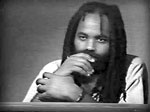What a difference a ‘constitution’ makes?
Published Jan 6, 2006 11:17 PM
With the proposed
constitutional voting out of the way, the nation’s president and the press
are calling for celebrations, suggesting that Iraq, battered, beaten, all but
broken Iraq, is on the yellow brick road to
“democracy.”
Forget, for a second, the nonsense about
“democracy,” as if it is a lily that can be planted in desert soil,
but the legalistic, word-infested, daze with which Americans treat the subject
of “constitutions” leads many folks to think that once words are
written on paper, the deed is almost done.
That is the thinking of many in
this business-oriented contract culture: paper equates to power, and what is
written becomes real.
But Iraq threatens to prove that paper is, after
all, just paper.
And some observers are seeing, not
“democracy” on the horizon, but the harrowing specter of civil
war.
Much American commentary is spent on the claim that the Iraqi
military is beginning to shoulder its burden of defending the country. There is
one serious problem with that claim, and that’s that no such national
military exists.
What exists, according to former U.S. Ambassador Peter
Galbraith, is an assortment of regional and essentially ethnic militias.
Galbraith, writing in a recent edition of the New York Review of Books,
argues:
“In this deeply divided country, people are loyal to their
community but not to Iraq, and the army reflects these divisions. Of the 115
army battalions, 60 are made up of Shiites and located in southern Iraq, 45 are
Sunni Arab and located in the Sunni governates, and nine Kurdish peshmerga,
although they are officially described as the part of the Iraqi Army stationed
in Kurdistan. There is exactly one mixed battalion (with troops contributed from
the armed forces of the main political parties) and it is in Baghdad ...
Kurdistan law prohibits the deployment of the Iraqi army within Kurdistan
without permission of the Kurdistan National Assembly.” [Peter Gal braith,
“Last Chance for Iraq”, *NYROB* (10/6/05), p.
22.]
Oh—the so-called “constitution”? It insures the
autonomy of the regions, and separate states. The central government isn’t
central at all. In Iraq, it’s “all power to the
provinces.”
Galbraith cites U.S. military sources for the fear that
a civil war is imminent.
Months ago, I wrote that the alleged elections
are virtually irrelevant.
I’ve found no reason to change that
view.
The idea of “nation” differs from one religious
community to another. What holds them together, just barely, is the memory of a
nation-state. For some, that memory was one of dread. For others, Iraq was a
place of glory.
And as there are different memories, some negative, some
positive, these forces are pulling together, and pulling apart.
The idea
of “nation” is slippery, illusive, ever-changing.
In time,
perhaps in a surprisingly short time, there may be two, or three Iraqs. A
Shi’a Iraq; a Sunni Iraq; and an Iraqi-Kurd homeland.
Without
question, U.S. “national interests” (meaning “oil”) will
come from one of them (or perhaps all of them).
A nation under foreign
occupation isn’t really a nation, after all; it’s a colony.
It
doesn’t make the really big decisions; those decisions are made for them
by the occupying power. That’s the very definition of
“empire.”
An empire, in order to be an empire, must have
colonies.
If you think the Americans aren’t calling the shots in
Iraq, you’re tripping!
They can talk about the Prime Minister and
prattle on about the “constitution”; after all is said and done,
Iraq is a state in the grip of a foreign power: the Americans.
Nations are
taken over for the good of the conqueror; never the conquered!
Iraq is no
exception.
Articles copyright 1995-2012 Workers World.
Verbatim copying and distribution of this entire article is permitted in any medium without royalty provided this notice is preserved.
Workers World, 55 W. 17 St., NY, NY 10011
Email:
[email protected]
Subscribe
[email protected]
Support independent news
DONATE


